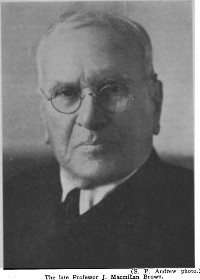Pacific
Civilisation Collapse
Civilisation Collapse has occurred many times over the past millennia in all parts of the world. The American anthropologist, Joseph A. Tainter[1539] defines collapse as “a rapid shift to a lower level of complexity(a) .” Societal disintegration immediately brings to mind the Maya, the Indus Valley and in what are relatively more modern times, the Western Roman Empire.
The causes are usually a combination of factors, such as climate change, warfare, disease or excessive expansionism. Global catastrophes such as encounters with comets or asteroids are rare, while more local events such as earthquakes, volcanic eruptions or tsunamis can also be thrown into the mix. These have all been encountered from time to time, but have rarely been blamed for the collapse of a society; full recovery from such limited regional events is usually possible.
The Mediterranean has seen its share of all these catastrophic events. A major tsunami on Sardinia, volcanic eruptions in Italy, and earthquakes in North Africa and the Eastern Mediterranean. Close encounters with extraterrestrial bodies have also been proposed in that region.
Perhaps the best-documented civilisation collapse is that which occurred around 1200 BC and affected many societies, particularly in the Middle East(b) . Israel Finkelstein, a leading Israeli archaeologist, has attributed this event to climate change and is of the view that this disruption was global in extent.
Inevitably, Atlantis has been cited as an example of civilisation collapse, particularly among supporters of the Minoan Hypothesis, who link the 2nd millennium BC eruptions of Thera with the demise of the Minoans on Crete. Also popular is the idea that Atlantis had been a large island in the Atlantic Ocean destroyed by a cometary impact or the rising sea levels as the glaciers melted at the end of the last Ice Age.>However these Atlantic suggestions would appear to be ruled out by Plato’s clear statement that Atlantis was destroyed by an earthquake.<
A variety of other theories have associated Atlantis with the collapse of a civilisation. For example, Frank Joseph claims that 40,000 years ago “sudden sea-level rises triggers migration from Mu around. The Pacific motherlanders settle on a large, fertile island about 380 kilometers due west from the Straits of Gibraltar. There, the newcomers merge with the native Cro-Magnon inhabitants, resulting in a new, hybrid culture – Atlantis.”>Unsurprisingly, Joseph fails to explain why refugees from the Pacific would travel all the way from the Pacific to settle in the Atlantic when their previous homeland was surrounded by more accessible alternatives such as the Americas, Australia, Asia and Africa. He also fails to explain how the migrants had the seafaring ability to travel such a distance. Furthermore, since all the oceans are connected this sudden sea level rise would also have had a similar effect in the Atlantic generating mass migrations there also.<
Marsh, Peter

He takes Plato’s Atlantis account at face value and accepts that it flourished sometime around 9,500 BC. Additionally, in chapter 10 of his website, he refers to the Michigan copper mines and surmises that they were transported to Europe by Phoenicians and Berbers!
>Despite the above Marsh published a paper on the Atlantisforschung website unexpectedly entitled The Golden Age – Atlantis in the Caribbean(c).<
(a) https://web.archive.org/web/20190922053225/https://www.polynesian-prehistory.com/
(b) https://grahamhancock.com/phorum/read.php?1,210178,211208
Macmillan Brown, John
 John Macmillan Brown (1845-1935) although Scottish by birth, he spent his academic life in New Zealand, where he was a professor of Classics and English at Canterbury College in Christchurch. He had an enlightened attitude towards the education of women.
John Macmillan Brown (1845-1935) although Scottish by birth, he spent his academic life in New Zealand, where he was a professor of Classics and English at Canterbury College in Christchurch. He had an enlightened attitude towards the education of women.
In 1924, he published Riddle of the Pacific[1155] in which he expressed the view that there had been a continent in the Pacific with some of today’s island groups its only remnants. This was some years before James Churchward started publishing his books on Mu.
LaBorde, Jean Benjamin de
Jean-Benjamin De LaBorde (1734-1794) was best known as a musician  from the age of 14 but was also a historian and cartographer(a). In his Histoire abregeee de la Mer du Sud [1266]+, it appears he was the first to suggest a sunken continent in the South Pacific with New Zealand and other island groups being today’s remnants>of a lost land comparable with Plato’s Atlantis.
from the age of 14 but was also a historian and cartographer(a). In his Histoire abregeee de la Mer du Sud [1266]+, it appears he was the first to suggest a sunken continent in the South Pacific with New Zealand and other island groups being today’s remnants>of a lost land comparable with Plato’s Atlantis.
However, Atlantisforschung suggests that LaBorde was more inclined to associate America with Atlantis(b).<
Unfortunately, his musical and scientific interests were curtailed when his association with Louis XV led him to the guillotine.
[1266]+ https://books.google.com.vc/books?
(a) Wayback Machine (archive.org)
(b) Jean Benjamin de La Borde – Atlantisforschung.de (atlantisforschung-de.translate.goog) *
Vincent, Louis-Claude
 Louis-Claude Vincent (1906-1988) was a French hydrologist who is probably best known for his foray into the field of alternative medicine when he developed his theory of bio-electronics. In 1969, with unexpected incongruity, he published two large volumes (800 pages) on the origins of civilisation entitled Le paradis perdu de Mu (The Lost Paradise of Mu). He claimed that an impact with an extraterrestrial body changed the axis of rotation of the Earth by 90° causing the Deluge and submerging Atlantis in the Pacific.
Louis-Claude Vincent (1906-1988) was a French hydrologist who is probably best known for his foray into the field of alternative medicine when he developed his theory of bio-electronics. In 1969, with unexpected incongruity, he published two large volumes (800 pages) on the origins of civilisation entitled Le paradis perdu de Mu (The Lost Paradise of Mu). He claimed that an impact with an extraterrestrial body changed the axis of rotation of the Earth by 90° causing the Deluge and submerging Atlantis in the Pacific.
